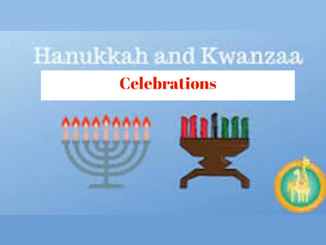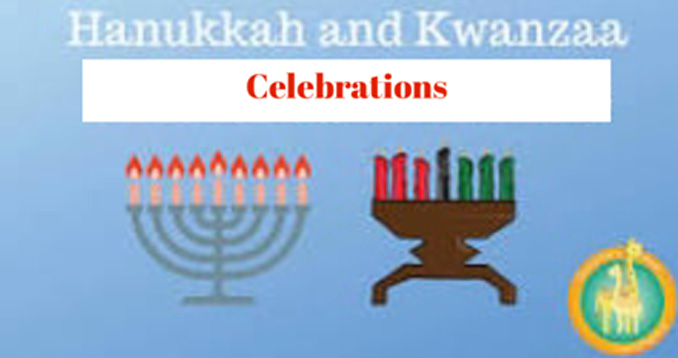

There are many celebrations that take place during the holiday season. This year the Jewish holiday of Hanukkah starts during the evening of December 18th. This festival commemorates events that took place in Judea more than 2,000 years ago, when the Syrian king Antiochus ordered the Jews to abandon the Torah and publicly worship the Greek gods.
This act provoked a rebellion led by Judas Maccabeus, climaxed by the retaking of the Temple in Jerusalem, which had been desecrated by the Syrians. The army of Jews won, despite their small numbers.
In an eight-day celebration, the “Maccabees” (as the rebels came to be known) cleansed and rededicated the Temple. According to the Talmud, there was only enough consecrated oil to re-light the candelabra for one day, yet, miraculously, it remained lit for eight days.
Yuletide is a pagan festival that follows Yule the midwinter solstice (usually around 21st December) and celebrates the return of the sun as the days slowly start to get longer again. The festivities, which involved lots of drinking and merrymaking, lasted up to 12 days, hence the 12 days of Christmas. Yuletide means the time following Yule. Christmas celebrations have incorporated a lot of the yuletide traditions. Yuletide starts on December 21st and ends on December 26th.
Kwanzaa starts on December 26th and ends on New Year’s day. Maulana Karenga founded this unique African diasporan festival in 1966 to help people, living throughout the Americas, reconnect with their African cultural and historical heritage inspired by Umkhosi Woselwa, an annual Zulu festival. The word Kwanzaa comes from the swahili word anaza which means start. Kuanza or kwanza means to start. So Kwanzaa is a festival to start or welcome the new year which goes from December 26 to January 1st. An extra “a” was added to kwanza to reflect 7 days of Kwanzaa.So it’s a festival to start the new year. Kwanzaa is not a religious festival but it has spiritual roots with both Islamic and Christain origins reflected in the 7 principles of which are each celebrated on the 7 days of Kwanzaa as Africa has both Islamic and Christian influences.

Leave a Reply